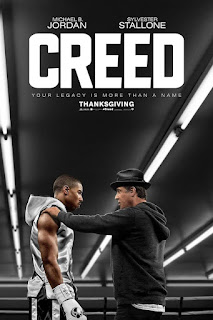
Dir. Spike Lee
Cast: Malcolm X (Denzel Washington), Betty Shabazz (Angela Basset), Shorty (Spike Lee), West Indian Archie (Delroy Lindo)
40 acres and a mule, 1992.
"Malcolm X" [Is your use of quotes a stylistic choice? Usually quotes are used with titles of shorter works i.e. poems, short stories, essays, and chapters] is what a biopic should look like. I've long held that "Do The Right Thing" (DTRT ) is my favorite Spike Lee Joint, and after watching this, even though personally DTRT is still my favorite Spike Lee Joint, objectively I would say "Malcolm X" is his best film. In a catalog with hits like Crooklyn, and School Daze, as well as fellow Denzel Collabs like Mo' Better Blues and He Got Game, this being his best film tells you that it is especially great given the reception of the aforementioned films. In a generation with laughable biopics filled with poor casting, blatant anachronisms, and centered on insignificant people [Henry, I love this - could you list one or more examples?], Malcolm X is a breath of fresh air that reminds film buffs of the beauty of a historically accurate and well casted biopic.
The film is relatively long [3 hr and 25 min if I am not mistaken], but I don't think a second of it is wasted doing something that didn't add to either the beauty or message of the film. Perhaps this is because Spike couldn't afford to be extra given that the film had to be completed from a series of donations from black celebrities at the time. With that being said, every dollar is well spent. Lee doesn't simply tell us the story of Malcolm X, he does more than that while building X's Character. First he tells the story of Malcolm Little (X as a youth), then he tells us the story of Detroit Red (X's criminal moniker), and finally he tells us the story of Malcolm X [What about El-hajj Malik El-Shabazz?], the product of the two previous stages in his identity. By the time this is done the title character has gone through this metamorphosis right before you, and a man who has been dead for nearly 60 years is brought back to life through the accurate and intricate depiction of some of the most intimate moments of his life. He [Lee] beautifully recreates the militant image of X that is epitomized by the "by an means necessary" moment in the film, as well as the side of X that was motivated by the pure desire to unite black people. In the film that desire is tainted somewhere along the line by the nation of Islam, but valuable insight is provide about the end of X's life when it is depicted that his messages and ideas were in a state of being refined.
It shouldn't be forgotten that aside from all the beauty of the film and how accurately events are depicted, this film is one with a message. Released 4 months prior to Black History Month, it serves as both an ode to one of the most prominent figures in black history, but it's also meant to incite thought and self reflection. The anecdotes of X's life aren't simply for show, most viewers should be able to question the roles that religion, race and gender play in the world and their own lives during this film. Personally this film forced me to consider how I have been influenced by the world and how I am influencing the world. X finding himself on his haaj is symbolic of ones quest to find themselves through what ever means. His conflict of being a mixed child is symbolic of any person trying to balance 2 identities as well, and his situation with the Nation of Islam to me personally symbolizes that moment in a persons life when they realized that their hero has flaws.
Overall this film is memorable to say the least, and although I wont devote too much time to whine about how neither Angela Basset or Denzel Washington snagged Oscars for their roles in the film, I will say that it was a travesty. Individually I would give Denzel Washington's performance a 10/10 without a second thought. I also think this is one of Angela Bassets top 3 performances coming slightly before her roll as Kathrine Jackson in the Jackson 5 biopic. Overall I would give this film a strong 5/5 stars. I'm not sure if there's anything negative I can personally say about it, I think this sets the standard for what every biopic should look like in terms of casting, directing, screenwriting, and production.











